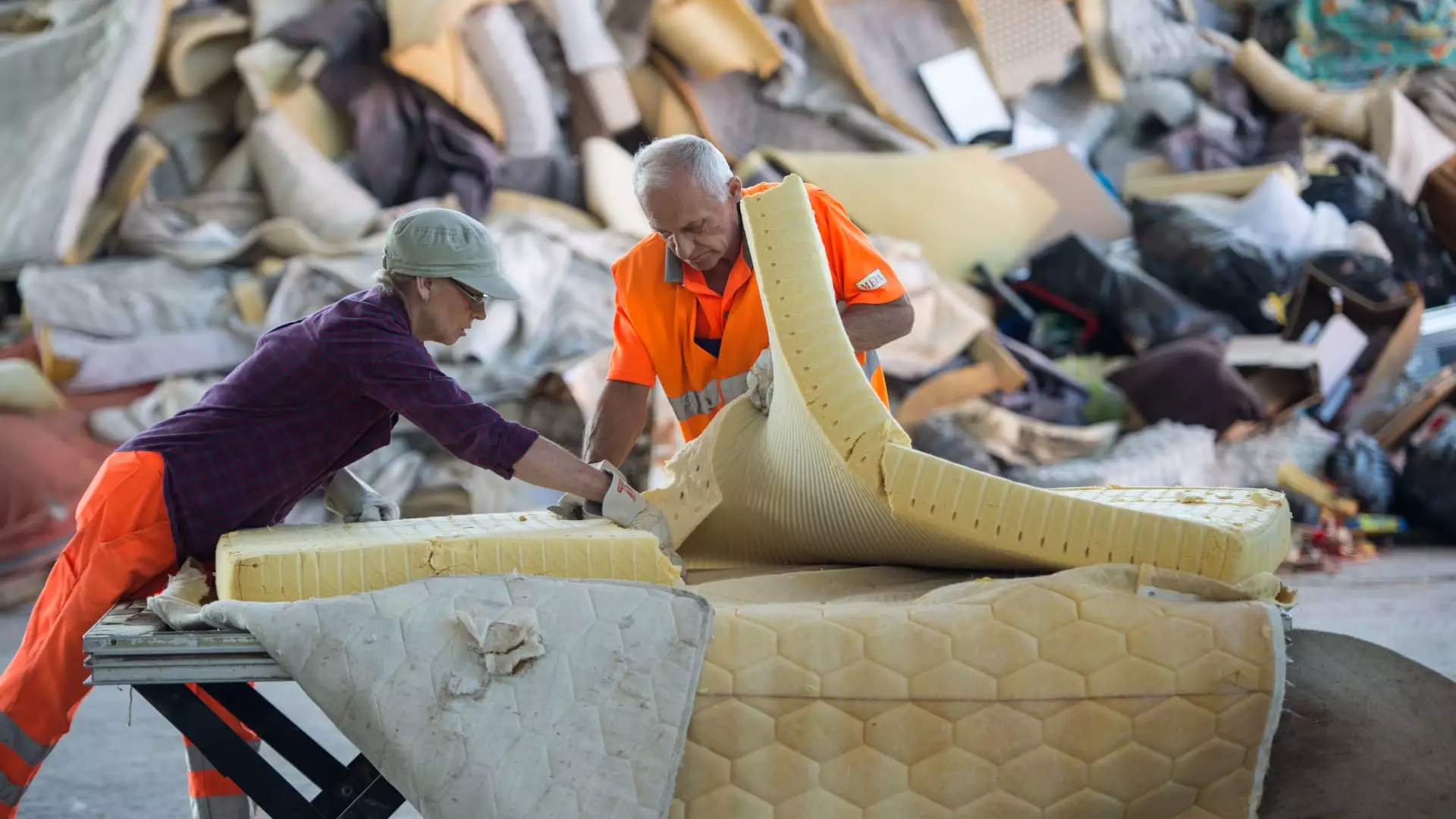As environmental concerns grow, the mattress industry is being urged to adopt more sustainable practices. A few pioneering states in the U.S.—California, Connecticut, Oregon, and Rhode Island—have taken a significant step by implementing mandatory fees on new mattress purchases. Ranging between $16 and $23, these fees contribute to state recycling programs designed to alleviate the negative impact of discarded mattresses on the environment. On average, Americans toss away between 15 million and 20 million mattresses annually, equating to roughly 50,000 units every day. This substantial figure highlights the urgent need for a structured and eco-friendly disposal solution that could pave the way for a circular economy, where materials are reused rather than relegated to landfills.
Consumers purchasing mattresses now face a flat fee that contributes directly to environmental stewardship. In Oregon, for example, this fee stands at $22.50, intended to streamline recycling processes and mitigate illegal dumping. California and Connecticut have recently increased their fees to $16 to support similar initiatives. These financial structures not only create immediate economic incentives for responsible disposal but also signal broader implications for public attitudes toward waste management. As citizens recognize their contributions to environmental welfare through these fees, there could be a shift in consumer behavior—one that favors companies demonstrating a commitment to sustainability.
Conversely, this raise in fees can lead to some skepticism and resistance from consumers who view such strategies as mere price increases rather than genuine environmental concern. However, stakeholders argue that these programs will eventually lead to lower disposal costs and enhanced recycling capabilities, making it easier for residents to manage used mattresses responsibly. With most mattresses being over 75% recyclable, the potential for resource recovery is significant.
The implementation of these fees is part of a broader movement known as Extended Producer Responsibility (EPR). EPR policies task manufacturers and retailers with the responsibility of managing their products post-consumer use. Such legislation is relatively novel in the U.S. but gaining traction as stakeholders—from environmentalists to government leaders—recognize its potential. By making these producers financially responsible for the disposal of their mattresses, states can create a more sustainable ecosystem for waste management.
In Oregon, a significant portion of the fees collected will go directly towards operating costs for the recycling program. This allocation is crucial for establishing a robust and efficient recycling infrastructure. For example, over half of Oregon’s $22.50 fee is budgeted for operational necessities, while the rest addresses educational programs aimed at raising awareness of the importance of recycling mattresses.
Despite these progressive steps, significant hurdles remain in the mattress recycling landscape. Currently, a mere 58 companies across the U.S. operate facilities for mattress recycling, and even in states lacking such laws, consumers may find it challenging to locate viable recycling options. An overwhelming majority of these businesses charge fees for collection, further complicating the issue. For example, a recent experience in New York City revealed that a local concierge-style service charged $95 for mattress pickup—indicating a concerning gap in accessible disposal methods.
Once the recycling program is fully implemented, Oklahoma officials anticipate a reduction in illegal dumping and an increase in recycling jobs. This dual focus not only addresses waste management but also stimulates local economies by creating employment opportunities within the recycling sector.
Looking Ahead: The Future of Mattress Recycling
With ongoing discussions in states such as Maryland, Massachusetts, New York, and Virginia regarding similar mattress recycling programs, there’s potential for a nationwide shift toward environmentally responsible practices in various consumer goods sectors. As legislation evolves, a collaborative effort among states, manufacturers, and consumers could usher in a new era of eco-consciousness in the mattress industry.
Harnessing these resources and inviting public participation in recycling initiatives could transform how mattresses are disposed of in the U.S. This scenario encourages a culture of sustainability and shared responsibility, ultimately minimizing waste and encouraging a shift toward a circular economy. The time for innovative solutions is now, and as awareness grows, the hope is that more states will join the pioneers in reforming mattress disposal practices while protecting our planet for future generations.

